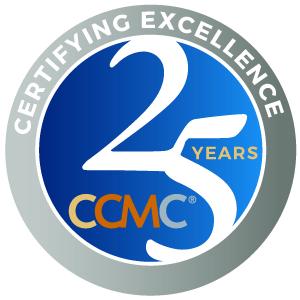Posted on 06/23/2017 - 1:21 PM by Mirlande Parker
You have to be able to walk and chew bubble gum at the same time to do this job! That is what I tell myself every day, especially when things start to get really busy.
My name is Mirlande Parker I am the Executive Assistant for the Commission for Case Manager Certification (CCMC). I work very closely with the CEO and COO and I support 17 Commissioners and other staff members. I have several duties, but my main focus is managing the Committees and Taskforces.
Managing a busy schedule is something that case managers face on a daily basis. In my role as Executive Assistant with CCMC, I am constantly juggling my own schedule, as well as the schedules of 50 volunteers who serve on our 17 committees and taskforces. There are several things you can do to keep yourself (and others) organized, so here are my top tips.
First and foremost, you must be organized. You have to create a system that will help you to remember dates, times, topics, names, projects, action items, etc.
I work with several calendars; the old fashion handwritten calendar that sits on my desk, Google calendar with the instant pop-up reminders, and BoardEffect, which is the governance portal that my Committees and Taskforces have access to, and lastly my little posted notes that I put on my computer and desk to remind me of some deadlines. Find a system that works best for you so that you are confident details will not slip through the cracks.
Secondly, work as far in advance as you can! Some of CCMC’s meetings are scheduled a year in advance. Usually, after the Commissioners meet in June, I have a layout of how many committees and taskforces I will have and when they will meet each month. I use that information to populate all of my calendars months in advance.
Next, follow a weekly routine. Every Monday morning, while having a cup of coffee, I review my calendars to see what I have for the week, what meetings that are happening and what preparations I have to make. I also review notes from past meetings to see if there are any actions items that I should be working on or if there is anything need to follow up on.
Calendars (and post it notes) are not the only things that keep me organized, I have policies and procedures that I must follow. For example:
- Two weeks prior to the meeting email Committee members to RSVP for the meeting
- Review the prior meeting minutes for any action items and motions.
- Draft the meeting agenda for review by CCMC Senior Staff and Committee Chair
- Follow up with Senior staff for any exhibits to be included in the meeting materials.
- A week before the meeting date, post the agenda and meeting materials and notify Committee and Staff of the posting.
- Two days prior to the meeting date check to see if there are any addendums that we need to add to the meeting book.
- The day before the meeting send out a meeting reminder to Staff and Committees members
- Finally, the meeting!
Of course, with any committee meeting comes meeting minutes. Most meetings will result in action items that either staff or volunteers will manage before the next scheduled call.
These are the steps I follow after each meeting to ensure everyone is aware of their responsibilities;
- First draft minutes for each meeting in an approved template
- Add on the google calendar 30-minute debriefing with CCMC Senior Staff.
- Review any action items or motion with CCMC Senior Staff
- Have CCMC Senior staff review draft my draft minutes before posting online for the volunteers to access.
- Minutes should be posted within 72 hours or 3 days following the meeting.
- Send Volunteer members notification that the minutes have been posted for review. The Committee members have 10 days from posting to review and submit any corrections to Staff. If there are any corrections those meeting minutes get added to the constant agenda for the next meeting.
- After the 10th day, remove minutes from draft status to approve and post.
Staying organized and managing 17 volunteer committees and taskforces is certainly a lot of work. But by following these steps, procedures and working far in advance, I am able to ensure that it is a positive experience for both our volunteers and staff.
How do you stay organized? We would love to hear from you in the comments below!

